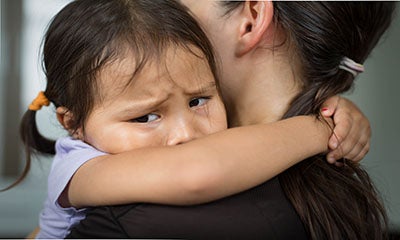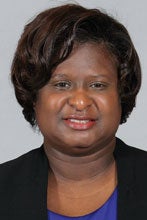School Study Guide: Recognizing the Signs of Separation Anxiety
September 15, 2025
Categories: News
Tags: Behavioral Health, Developmental Behavioral Pediatrics
Birmingham, Ala. (Sept. 15, 2025) – School is back in session, and some parents may have experienced some tearful, tantrum-filled goodbyes. Those difficult goodbyes may be a sign that your child is experiencing separation anxiety.
Separation anxiety is the anxiety or stress that comes from being separated from a caregiver. Many things can cause it. According to Dr. Nashedra Barry, a licensed psychologist at Children’s of Alabama, some children are predisposed to being a little anxious or uneasy with things. She also adds that it can happen to any child.
Barry says the signs of separation anxiety can include any crying or emotional distress, clinging to parents or caregivers when they are separated, trouble sleeping or seeking information about how long parents are going to be gone or if they are coming back. Barry says how long separation anxiety can last varies, depending on the child and how family members respond.
“The most important thing is to provide support but not be overly accommodating,” said Barry. “It is natural to want to help your child when they are feeling upset or distressed. But we do them a disservice by avoiding the things that make them feel anxious. It is important that we encourage them to do the things that make them anxious.”
Barry says separation anxiety is treated with systematic desensitization.
“We kind of push you into facing some of your fears in a gradual way,” said Barry. “So, for separation anxiety, that looks like putting children in situations where they are required to be separated from caregivers. We find that over time, that decreases the anxiety they feel when they are put in those situations.”
Parents should talk to their child’s pediatrician if the separation anxiety lingers and starts to affect a child’s daily activities. Also, parents should seek professional help if the child begins to have panic symptoms or panic attacks, nightmares about separation, fears of sleeping alone or excessive worry about being lost or kidnapped or going places without a parent.
Previous Stories:












